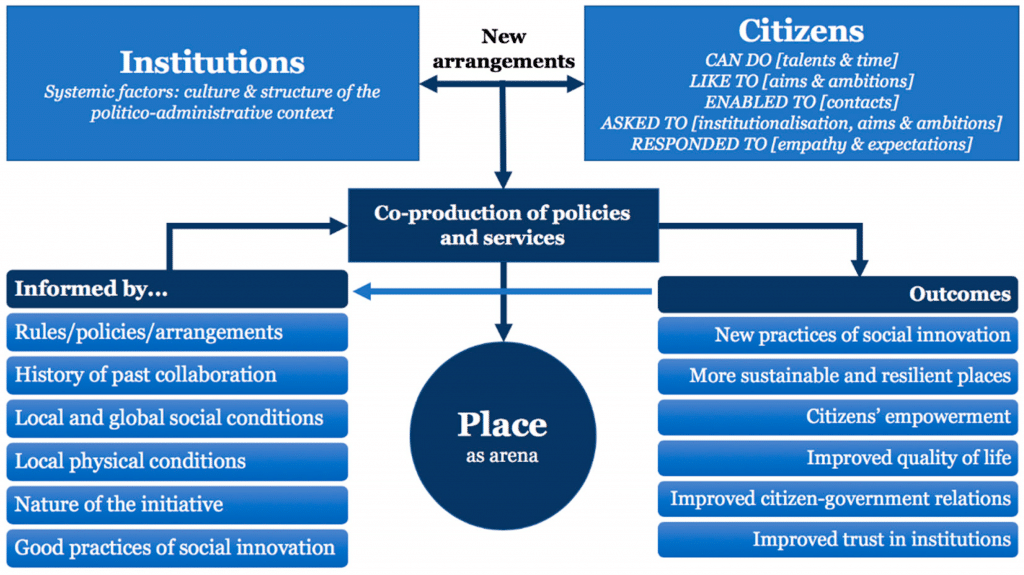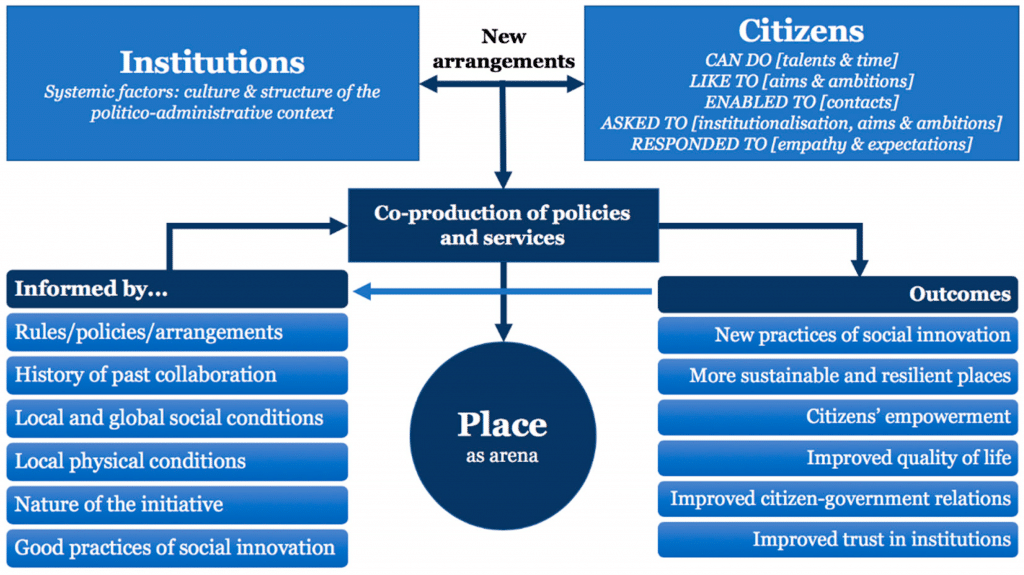
In the recently published article Citizen Initiatives in the Post-Welfare State , SUSPLACE researcher Diogo Soares da Silva reflects on the role of citizen initiatives in shaping sustainable places. The article is based on the outcomes of the research project The Energetic Society and was co-authored by prof. Lummina Horlings and prof. Elisabete Figueiredo. The article belongs to the Special Issue Civic Enterprises, the Co-Production of Public Governance and the Prospects for Democratic Renewal in Europe of Social Sciences.
Abstract: Recently we have seen the emergence of citizen-led community initiatives and civic enterprises, taking over governmental tasks in providing public services in various sectors, such as energy, care, landscape maintenance, and culture. This phenomenon can be explained by a renewed interest in community, place, and ‘local identity’; the erosion of the welfare state; the privatization of public services; a re-emergence of the social economy; and tensions between ‘bottom-up’ initiatives and the changing role of the state. The co-production of governments and initiatives can potentially result in a shift from government-led to community-led planning. This, however, raises questions about their innovative potential, the democratic consequences, and the potential roles of governments in enabling these societal dynamics. This article discusses these issues theoretically, illustrated with empirical examples from Portugal, the Netherlands, and Wales, in a context of uncertainty regarding the future of the traditional European welfare state.
Keywords: citizen initiatives; citizen-led initiatives; co-production; sustainable place-shaping
View full article: https://www.mdpi.com/2076-0760/7/12/252
To share & cite the article: Soares da Silva D, Horlings LG, Figueiredo E. Citizen Initiatives in the Post-Welfare State. Social Sciences. 2018; 7(12):252.

